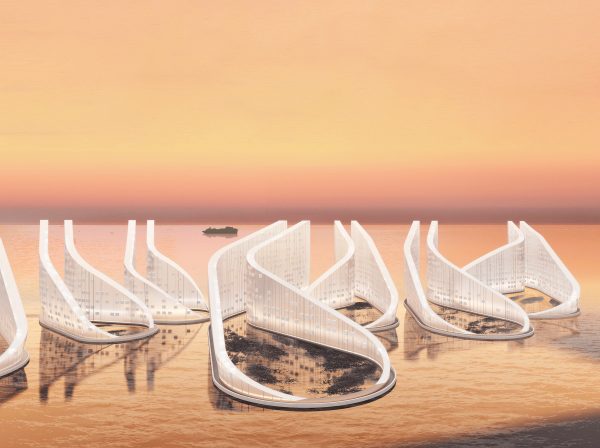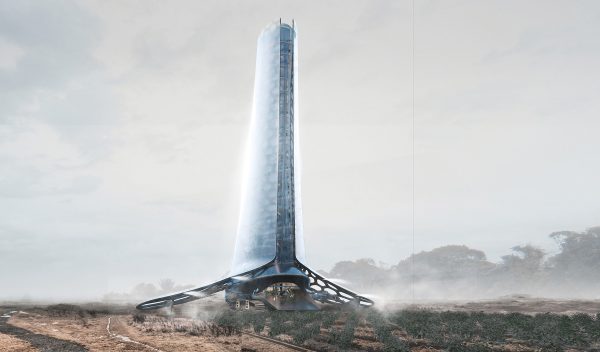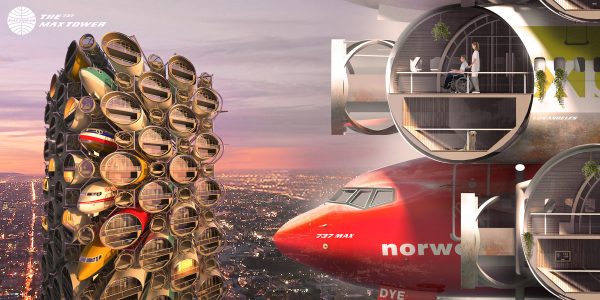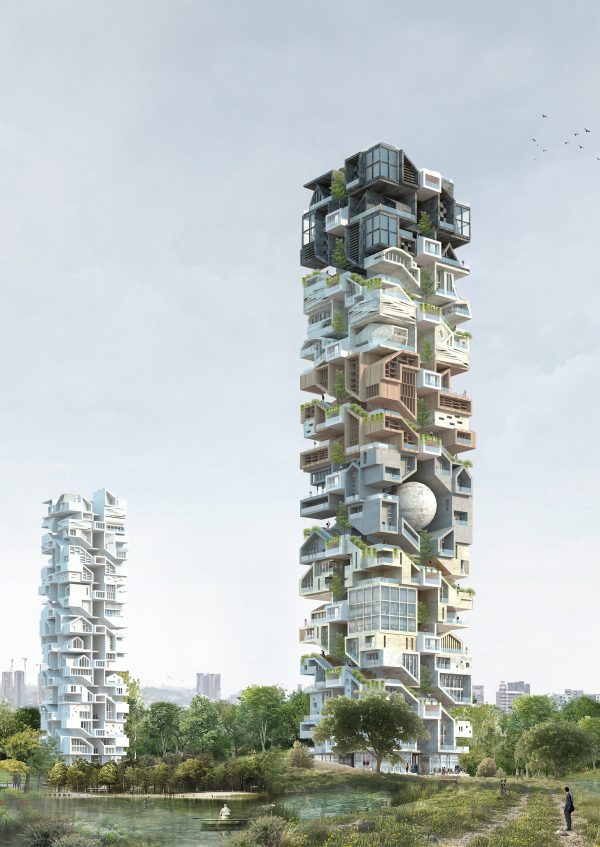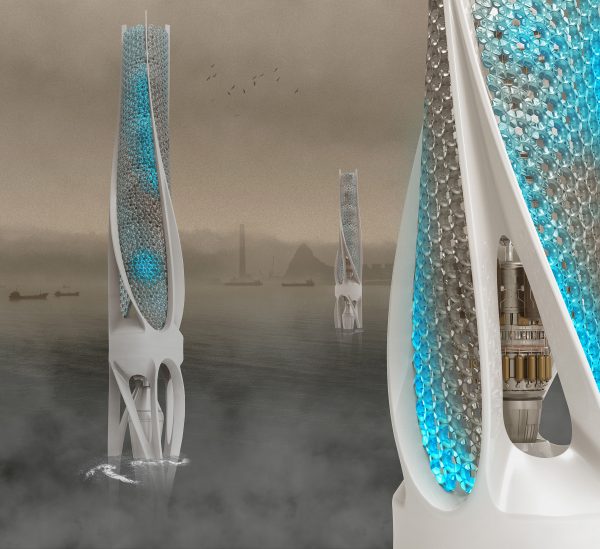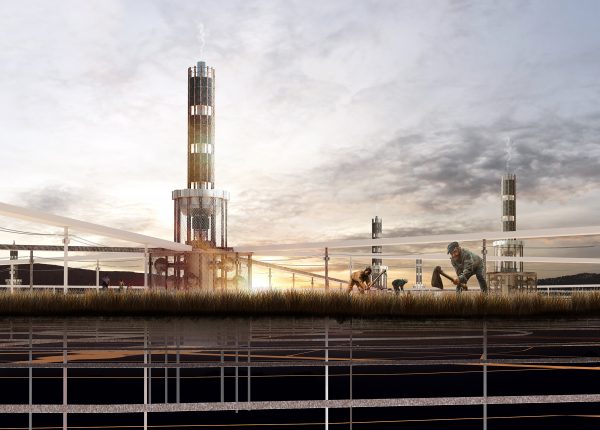Honorable Mention
2020 Skyscraper Competition
Zijie Nie, Chen Shen, Jian Zheng
United States
Affected by global climate change, many countries and regions are suffering from sea-level rise problems, where people are losing their lands, plants and animals are losing their homes. The design is based in Kiribati, an island country in the South Pacific. This reef-preserving country is particularly vulnerable to the rising sea level issues, and its territory is thought likely to disappear within the next 60 years.
The design proposes to constructs a series of wall-like skyscrapers in the offshore waters and combats the problems caused by rising sea levels in three aspects.
First, by studying the erosion of the coast and the direction of the ocean currents, the design of the architectural massing is used to slow down the speed of the ocean currents flowing around the building. With such a method, the sand and mud in the water are able to deposit as sediment and gradually cultivate the new islands over time.
Second, with the design of skyscraper, land area submerged by seawater was transferred to the air, and thousands of residential units were built in the air to provide a place for people to live and use, protecting them from natural disasters such as hurricane and flood.
Thirdly, while constructing a vertical ecosystem to provide greening for people living in it, it can also become a seed bank for retaining plant diversity in Kiribati and other South Pacific regions. Meanwhile, a large number of artificial components located between underwater structures can be a place for coral reef protection and regeneration.
Finally, we hope that through this design, we will challenge the traditional architectural design thinking—generating land first, then architecture. It provides a new building mode for Kiribati and other regions faced with the same sea-level-rise problem—growing land with buildings. Read the rest of this entry »

